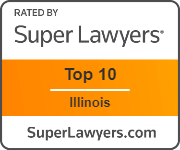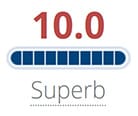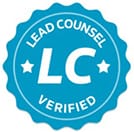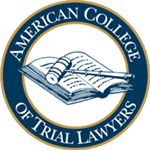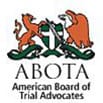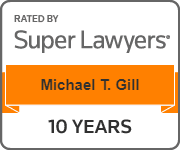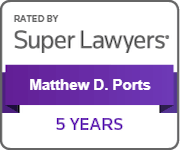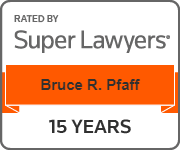How Do Seatback Failures Occur?
Air bags, seat belts and braking systems are the common focus of vehicle safety efforts, but seatbacks also play a critical role in preventing car accident injuries. For more than 90 years, the automobile industry has been seemingly unaware that seatback strength is also an essential compound in vehicle safety.
Flimsy, weak seatbacks collapse rearward when a car is rear-ended at speeds as low as 25 mph. In a rear-end collision, seat occupants may:
- Be fully or partially ejected from the vehicle
- Be thrown into the rear compartment of the vehicle or another structure of the vehicle
- Lose control of the vehicle, which can cause a multivehicle crash
- Injure rear occupants, especially children in car seats
- Suffer neck fracture and spinal cord injury due to excessive extension of the head and neck
If you have suffered a car accident injury that would not have been as severe if the seatback had held up during the collision, call our Chicago office now at 312-638-2407. Our team of experienced product liability attorneys understands how seatback defects happen and how to take action accordingly.
Seatback Failure In Rear-End Collisions
The seat and headrest are the only effective safety restraints in a rear-end collision. Your seat and headrest protect you in a rear-end collision only if they keep you in the seat throughout the collision. Weak seats can collapse when a vehicle is rear-ended. When your seat collapses, it allows your head and neck to impact other parts of the vehicle, causing serious injuries or death. Weak seats also endanger rear-seat passengers and children in car seats, all of whom can be struck and seriously injured or killed when front seats collapse.
No law firm has had greater success than Pfaff, Gill & Ports, Ltd., in seatback failure cases. We are the only firm to have won two seatback failure trials in Illinois:
L.C. v. Ford Motor Co. — $14.5 million jury verdict. This seatback failure case involved a mother on her way to day care to pick up her daughter. She was stopped at a red light at the wheel of her 1991 Ford Explorer. She was wearing her seat belt. A motorist traveling 52 to 60 mph in an older American sedan struck the rear of the Ford Explorer. Our client’s seat failed in the impact (the seat cushion frame assembly tore), she was thrown rearward, and her shoulders struck the rear seatback. The impact caused her to suffer a burst fracture of T8 and permanent paraplegia. Photos of her vehicle at the scene are shown below:
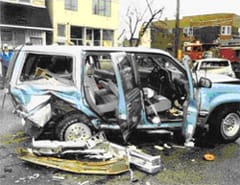
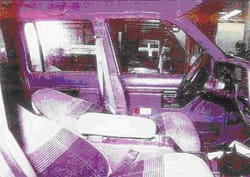
Ford argued that the driver who rear-ended our client’s vehicle was entirely to blame for the injuries and that their “yielding seat” design was reasonably safe. The Ford seat design met the pathetically weak government standard, FMVSS 207. Ford and other auto manufacturers of weak seats claim to design seats so that they yield in most impacts, minimizing whiplash and other less than severe injuries. Despite the lack of data to support their story, Ford stuck to its assertion. In the more severe impacts, weak seats do not protect the front or rear occupants; they endanger them. The jury found Ford Motor Co. liable and awarded $14.5 million in compensatory damages.
Pfaff, Gill & Ports, Ltd., then took Estate of J.M v. Ford Motor Co. and Mazda Motor Corp. to trial in 2005. Our client was seated at the wheel of his 1996 Ford Escort at a red light in Chicago. He was wearing his seat belt. An intoxicated motorist traveling at approximately 55 to 60 mph rear-ended the Escort. The driver’s seat failed and our client’s head struck the rear seatback or the rear header, causing fatal injuries. His daughter, in the rear seat passenger side seat, suffered leg fractures only. Ford and Mazda had joint design responsibility for the 1996 Escort. Their design philosophy was the same as in the 1991 Ford Explorer. The Escort seat also satisfied the FMVSS requirements. Photos of the car show the extent of the damage to the vehicle and the seat:

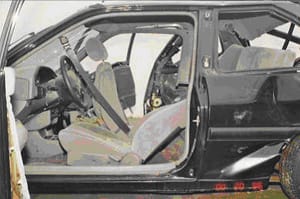
At trial, Ford and Mazda were found liable and the jury awarded compensatory damages of $27 million to our client’s surviving family.
Call For A Free Consultation After A Seatback Failure
If you or a loved one has been harmed as the result of a seatback failure, you may have a provable product liability claim entitling you to compensation for your injuries. You must act quickly to preserve the evidence necessary to investigate the design and manufacture of the vehicle following a car accident. Having the vehicle safely preserved is an important part of preparing a product liability case.
We can help. Contact Pfaff, Gill & Ports, Ltd., today to schedule a free consultation. Call our office at 312-638-2407 or contact us online.
